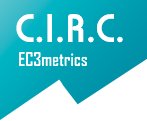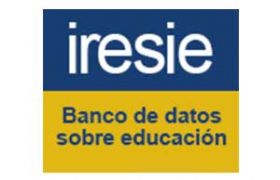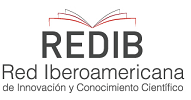LA FORMACIÓN CONTINUA DEL PROFESORADO PARA LA EDUCACIÓN INCLUSIVA
Resumen
Avanzar en el desarrollo de una educación inclusiva y garantizar el derecho a la educación a todo el alumnado precisa de un profesorado preparado para responder a los retos educativos. La formación continua representa una palanca de cambio en la profesión docente que se sigue considerando una tarea pendiente y, por ende, es objeto de estudio en numerosas investigaciones. Este artículo presenta una revisión sistemática internacional de la literatura para conocer los últimos avances en materia de formación continua del profesorado para la educación inclusiva. La metodología ha sido cualitativa, basada en la herramienta de revisión sistemática PRISMA-P y mediante técnicas de análisis crítico del contenido. Un total de 32 artículos de WOS, Scopus y Eric (2011-2023) han sido revisados, categorizados y analizados respondiendo a: cómo se conceptualiza la educación inclusiva en la investigación sobre formación continua y cuáles son los componentes clave para una formación continua eficaz. La colaboración como base, el acercamiento a la práctica contextualizada, la implicación de agentes de la comunidad y de la administración y otras claves se abordan en la discusión. Las conclusiones apuntan a la necesidad de incorporar una visión interseccional sobre la exclusión que ponga en valor los diferentes componentes que la atraviesan.
Palabras clave
Referencias
* Las referencias utilizadas en el análisis aparecen marcadas con un asterisco.
Ainscow, M. (2016). Diversity and equity: A global education challenge. New Zeland Journal of Educational Studies, 51(2), 143–155.
Ainscow, M., & Miles, S. (2008). Por una educación para todos que sea inclusiva: ¿Hacia dónde vamos ahora? Perspectivas, 38(1), 17–44.
*Al-Natour, M., Amr, M., Al-Zboon, E., & Alkhamra, H. (2015). Examining collaboration and constrains on collaboration between special and general education teachers in mainstream schools in Jordan. International Journal of Special Education, 30(1), 64–77.
*Alshahrani, B. & Abu-Alghayth, K. (2023). Teachers’ Professional Development for Inclusive Education, A perspective from Saudi (Mixed Methods Study). Information Sciences Letters International Journal, 12(3), 1497-1504. http://dx.doi.org/10.18576/isl/120337
Arnaiz, P., De Haro, R. D., & Azorín, C. M. (2018). Redes de apoyo y colaboración para la mejora de la educación inclusiva. Profesorado: Revista De Currículum Y Formación Del Profesorado, 22(2), 7–27.
Azorín, C., Arnaiz, P., & Maquilón, J. J. (2017). Revisión de instrumentos sobre atención a la diversidad para una educación inclusiva de calidad. Revista Mexicana De Investigación Educativa, 22(75), 1021–1045.
Booth, T. y Ainscow, M. (2011). Index for Inclusion: developing learning and participation in schools (3ª Edición). Bristol: Centre for Studies in Inclusive Education.
Bourn, D. (2016). Teachers as agents of social change. International Journal of Development Education and Global Learning, 7(3), 63–77. https://doi.org/10.18546/ijdegl.07.3.05
*Campa, R. A., Valenzuela, B. A., Guillen, M., & Campa, M. L. (2020). Desafíos en la educación inclusiva de grupos vulnerables en primaria: Perspectivas del profesorado de Sonora México. Revista Inclusiones, 7(1), 72–94.
Crisol, E. (2019). Hacia una educación inclusiva para todos: Nuevas contribuciones. Profesorado: Revista De Currículum Y Formación Del Profesorado, 23(Enero-Marzo), 1–9.
Darling-Hammond, L. (2016). Research on Teaching and Teacher Education and Its Influences on Policy and Practice. Educational Researcher, 45(2), 83–91. https://doi.org/10.3102/0013189X16639597
Darretxe, L., Gezuraga, M., & Berasategi, N. (2020). La necesidad de avanzar hacia la investigación inclusiva. Márgenes, Revista de Educación de La Universidad de Málaga, 1(1), 104–114. https://doi.org/10.24310/mgnmar.v1i1.7139
*Duk, C., & Hernandez-Ojeda, F. (2020). Improving Response to Diversity in the Classroom through Lesson Study in Chilean Schools. Revista Internacional de Educación Para La Justicia Social, 9(1), 99–123. https://doi.org/10.15366/riejs2020.9.1.005
Durán, D., & Giné, C. (2011). La formación del profesorado para la educación enclusiva : Un proceso de desarrollo profesional y de mejora de los centros para atender la diversidad. Revista Latinoamericana de Educación Inclusiva, 5(2), 153–170.
*Eklund, G., Sundqvist, C., Lindell, M., & Toppinen, H. (2020). A study of Finnish primary school teachers’ experiences of their role and competences by implementing the three-tiered support. European Journal of Special Needs Education, 1–14. https://doi.org/10.1080/08856257.2020.1790885
Eraut, M. (1990). Identifying the knowledge which underpins performance. En H. Black y A. Wolf, Knowledge and Competencies: Current issues in training and education. En Scottish Council for Research in Education and Alison Wolff (pp. 22-28). University of London: London.
Escudero, J. M. (2012). La educación inclusiva, una cuestión de derecho. Educatio Siglo XXI: Revista De La Facultad De Educación, 30(2), 109–128.
Escudero, J. M. (2020). Un cambio de paradigma en la formación continuada del profesorado: escenario, significados, procesos y actores. Qurriculum. Revista de Teoría,Investigación y Práctica Educativa, 33(junio), 97–125. https://doi.org/10.25145/j.qurricul.2020.33.06
Escudero, J. M. y Gómez, A. L. (2006). La formación del profesorado y la mejora de la educación. Octaedro.
Esteve, J. M. (2008). La tercera revolución educativa. Paidós.
Esteve, J. M. (2009). La profesión docente ante los desafíos de la sociedad del conocimiento. In C. Vélaz de Medrano & D. Vaillant (Eds.), Aprendizaje y desarrollo profesional docente (pp. 17–28). Fundación Santillana.
*Fernandes, C. H. (2014). Relaciones entre la investigación y la formación docente permanente: El conocimiento necesario para la diversidad. Estudios Pedagogicos, 40(2), 161–174. https://doi.org/10.4067/s0718-07052014000300010
*Fernández-Batanero, J. M., & Rodríguez-Martín, A. (2017). ICT and functional diversity: knowledge of the teaching staff. European Journal of Investigation in Health, Psychology and Education, 7(3), 157–175.
*Ferrari, M., Castiglioni, I., Mura, G., & Diamantini, D. (2018). Creating an inclusive digital school district in a Northern Italian Urban Periphery. Revista de Cercetare Si Interventie Sociala, 60(March), 7–24.
Freire, P. (1994). Cartas a quien pretende enseñar. Siglo XXI.
Fullan, M., & Hargreaves, A. (2014). Capital profesional. Editorial Morata.
Fullan, M., Rincón-Gallardo, S., & Hargreaves, A. (2012). Professional Capital as Accountability. Education Policy Analysis Archives, 23(15), 1–36. http://dx.doi.org/10.14507/epaa.v23.1998
*Gezer-Demirdagh, S. & Cavkaytar, A. (2022). Effectiveness of the Online Inclusive Teachers’ Professional Development Program on Problem Behavior. Education and Training in Autism and Developmental Disabilities, 57(1), 92–103.
Gil, C. J. L., León, C. J. L. y Morales, M. (2017). Los paradigmas de investigación educativa, desde una perspectiva crítica. Revista Conrado, 13(58), 72-74. Recuperado a partir de https://conrado.ucf.edu.cu/index.php/conrado/article/view/476
González, M. T., & Cutanda, M. T. (2017). La formación continuada del profesorado de enseñanza obligatoria: incidencia en la práctica docente y el aprendizaje de los estudiantes. Profesorado: Revista De Currículum Y Formación Del Profesorado, 21(3), 103–122.
*Haitembu, R.K. & Maarman, R. (2022). The Namibian inclusive education policy’s response to gender nonconforming learners. Journal of Research in Special Educational Needs, 23(2), 116–125. https://doi.org/10.1111/1471-3802.12584
Hempel, S. (2020). Conducting your literature review. American Psychological Association.
*Herreros, A. L. & Batista, P. (2022). Formando al profesorado para la inclusión: evaluación de un sistema de acciones. Revista Complutense de Educación, 33(3), 475-483. https://doi.org/10.5209/rced.74505
*Hettiarachchi, S., Ranaweera, M., Walisundara, D., Daston-Attanayake, L., & Das, A. K. (2018). Including all? Perceptions of mainstream teachers on inclusive education in the Western Province of Sri Lanka. International Journal of Special Education, 33(2), 427–447.
*Hettiarachchi, S., & Das, A. (2014). Perceptions of “inclusion” and perceived preparedness among school teachers in Sri Lanka. Teaching and Teacher Education, 43, 143–153. https://doi.org/10.1016/j.tate.2014.07.003
*Igrić, L., Marinić, M. & Maljevac, A. (2021). Comparison of Teachers and Teaching Assistants' Perspective of Necessary Teaching Assistant Competences. Croatian Journal of Education, 23(2), 605-650. https://doi.org/10.15516/cje.v23i2.3700
Imbernón, F. (1989). La formación del profesorado. El reto de la reforma. Laia.
Imbernón, F. (2007a). 10 ideas clave: La formación permanente del profesorado. Nuevas ideas para formar en la innovación y el cambio. GRAÓ.
Imbernón, F. (2007b). La formación y el desarrollo profesional del profesorado. Hacia una nueva cultura profesional (7ª edición). GRAÓ.
Imbernón, F. (2012). Nuevos retos del profesorado en el siglo XXI. La necesidad de una nueva formación permanente en tiempos de crisis. Crítica, 982(7), 24-27.
Imbernón, F. (2020). La formación permanente del profesorado. Algunas inquietudes, evidencias y retos a superar. Crónica: Revista Científico Profesional de la Pedagogía y Psicopedagogía, 5, 103-112.
*Juma, S., Lehtomäki, E., & Naukkarinen, A. (2017). Developing Inclusive Pre-Service and In-Service Teacher Education: Insights from Zanzibar Primary School Teachers. International Journal of Whole Schooling, 13(3), 67–87.
*Khan, I. K., Hashmi, S. H., & Khanum, N. (2017). Inclusive Education in Government Primary Schools: Teacher Perceptions. Journal of Education and Educational Development, 4(1), 94–110.
*Kivirand, T., Leijen, A. & Lepp, L. (2022). Enhancing Schools’ Development Activities on Inclusive Education Through In-service Training Course for School Teams: A Case Study, Frontiers in Psychology, 13, 1-16, https://doi.org/10.3389/fpsyg.2022.824620
*Kozikoğlu, İ. & Albayrak, E. N. (2021). Teachers' attitudes and the challenges they experience concerning individualized education program (IEP): A mixed method study. Participatory Educational Research, 9(1), 98-115. http://dx.doi.org/10.17275/per.22.6.9.1
*Largo, E. A., García, C. X., & Bermúdez, I. L. (2018). La preparación del docente de la zona rural. Premisa para una educación inclusiva. Revista Universidad y Sociedad, 10(3), 190–194.
*López, A. L., Aristizabal, M. P., & Garay, B. (2020). Discourses of inclusion and diversity among educators of the municipal network of early childhood education schools in Vitoria-Gasteiz. Revista Internacional de Educacion Para La Justicia Social, 9(1), 59–80. https://doi.org/10.15366/RIEJS2020.9.1.003
*Makaya, P. (2022). Rural Teachers Preparation for Inclusive Education in Zimbabwe: A Case of Gutu District Primary Schools in Masvingo Province. i-manager’s Journal on Educational Psychology, 16(2), 26-37. https://doi.org/10.26634/jpsy.16.2.19011
*Muñoz, Y., Gárate, F. & Marambio C. (2021).Training and Support for Inclusive Practices: Transformation from Cooperation in Teaching and Learning. Sustainability, 13(5), 2583. https://doi.org/10.3390/su13052583
Murillo, F. J. & Carrillo-Luna, S. (2021). Segregación escolar por nivel socioeconómico en Colombia y sus departamentos. MAGIS, Revista Internacional de Investigación en Educación, 14, 1–23. https://doi.org/Javeriana.m14.sens
*Mfuthwana, T., & Dreyer, L. M. (2018). Establishing inclusive schools: Teachers’ perceptions of inclusive education teams. South African Journal of Education, 38(4). https://doi.org/10.15700/saje.v38n4a1703
Nieto, J. M. y Alfageme-González, M. B. (2017). Enfoques, metodologías y actividades de formación docente. Profesorado. Revista de Currículum y Formación del Profesorado, 21(3), 63-81.
*Núñez Angulo, B. F., & Santamaría Conde, R. M. (2022). Lifelong learning in inclusive schooling at european level. HUMAN REVIEW. International Humanities Review, 13(1), 1–14. https://doi.org/10.37467/revhuman.v11.4009
*Nwoko, J. C., Crowe, M. J., Malau-Aduli, A. E. O., & Malau-Aduli, B. S. (2019). Exploring private school teachers’ perspectives on inclusive education: a case study. International Journal of Inclusive Education, june. https://doi.org/10.1080/13603116.2019.1629122
ONU: Asamblea General, Convención sobre los Derechos del Niño, 20 noviembre 1989, United Nations, Treaty Series, vol. 1577, p. 3, disponible en esta dirección: https://www.refworld.org.es/docid/50ac92492.html [Consultado el 18 febrero 2021]
ONU: Asamblea General, Declaración Universal de Derechos Humanos, 10 diciembre 1948, 217 A (III), disponible en esta dirección: https://www.refworld.org.es/docid/47a080e32.html [Consultado el 18 febrero 2021]
Parrilla, A., Sierra, S., & Muñoz, M. A. (2013). Proyectos educativos con vocación comunitaria. Revista de Investigación En Educación, 3(11), 15–31.
*Pasternak, D., Harris, S.D., Lewis, C., Wolk, M. A., Wu, X. & Evans, L. M. (2023). Engaging culturally responsive practice: Implications for continued learning and teacher empowerment. Teaching and Teacher Education, 122, 1-12. https://doi.org/10.1016/j.tate.2022.103976
Rivero, M. A., Behr, A., & Pesce, G. (2019). Gestión de la educación a distancia: revisión sistemática de la literatura. RIDCA.
Rodríguez, J. A. (2003). Paradigmas, enfoques y métodos en la investigación educativa. Investigación Educativa, 7(12), 23–40.
*Rodríguez, J. E., Civeiro, A., & Navarro, R. (2017). Formación del profesorado de Educación Física en atención a la diversidad en Educación Primaria. Sportis. Scientific Technical Journal of School Sport, Physical Education and Psychomotricity, 3(2), 323–339. https://doi.org/10.17979/sportis.2017.3.2.1886
*Rodríguez-Oramas, A., Álvarez, P., Ramis-Salas, M. & Ruiz-Eugenio, L. (2021). The Impact of Evidence-Based Dialogic Training of Special Education Teachers on the Creation of More Inclusive and Interactive Learning Environments. Frontiers in Psychology, 12, 1-13. https://doi.org/10.3389/fpsyg.2021.641426
Sirait, S. (2016). Does Teacher Quality Affect Student Achievement ? An Empirical Study in Indonesia. Journal of Education and Practice, 7(27), 34–41. www.iiste.org
Slee, R. (2012). La escuela extraordinaria. Exclusión, escolarización y educación inclusiva. Morata.
*Slowík, J., Šafránková, D. & Zachová, M. (2021). Support for teachers in the inclusive education of pupils with special educational needs: experience from primary schools in the Czech Republic. European Journal of Special Needs Education, 37(3), 447-460. https://doi.org/10.1080/08856257.2021.1894400
*Sramova, B. (2015). Social-inclusive competencies among Slovak teachers and future teachers. TOJET. Turkish Online Journal of Educational Technology, Special Issue, 477–480.
*Symeonidou, S., & Phtiaka, H. (2014). “My colleagues wear blinkers..If they were trained, they would understand better”. Reflections on teacher education on inclusion in Cyprus. Journal of Research in Special Educational Needs, 14(2), 110–119. https://doi.org/10.1111/j.1471-3802.2012.01234.x
*Traver, S. y Sanahuja, A. (2022). Acompañamiento y orientación educativa: hacia procesos de asesoramiento orientados a generar prácticas más inclusivas. Revista de Educación Inclusiva, 15(2), 237-252.
Trillo, F., Nieto, J. M., Martínez, B. y Escudero, J. M. (2017). El Desarrollo Profesional y la Colaboración Docente: Un Análisis Situado en el Contexto Español de las Tensiones y Fracturas Entre la Teoría y la Práctica. Archivos Analíticos de Políticas Educativas, 25(17). https://doi.org/10.14507/epaa.25.3316
Turnbull, A. (1995). Exceptional lives: Special education in today’s schools. Englewood Cliffs, N.J.: Merrill.
UNESCO (2009). Towards inclusive education for children with disabilities: A guideline. Bangkok: UNESCO.
UNESCO. (2020). Inclusión y educación: Todos y Todas sin excepción. Informe de Seguimiento de la Educación del Mundo. https://unesdoc.unesco.org/ark:/48223/pf0000374817
UNESCO. (2020). Informe de seguimiento de la Educación en el mundo de 2020: inclusión y educación. https://unesdoc.unesco.org/ark:/48223/pf0000265329_spa/PDF/265329spa.pdf.multi
Unión Europea, Convención sobre los Derechos de las Personas con Discapacidad, 13 diciembre 2006. https://www.refworld.org.es/docid/5d7fbf13a.html
Enlaces refback
- No hay ningún enlace refback.
Indexación:
Factor de impacto JCI: 0,81. categoría Q4 |  |  |
 |  |  |
 |  |  |
|  |  |
 |  |
|
-
| ISSN: 1889-4208 / e-ISSN: 1989-4643 | |
 Este trabajo se autoriza con una licencia Creative Commons Asignación 4.0 Internacional.
Este trabajo se autoriza con una licencia Creative Commons Asignación 4.0 Internacional.


